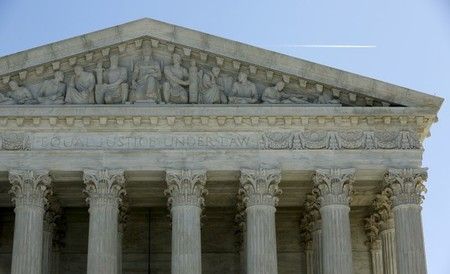Advertisement
Supreme Court refuses to review prenatal test patent dispute

By Andrew Chung
NEW YORK (Reuters) – The U.S. Supreme Court on Monday rejected a bid to review a legal fight over the cancellation of a patent on a less-risky form of prenatal testing, in a case that has left many companies and trade groups worried that important discoveries may no longer qualify for patents.
The decision by the Supreme Court leaves intact a ruling by a federal court to invalidate Sequenom Inc’s patent in an infringement dispute with rival Ariosa Diagnostics, a unit of Roche Holding AG.
Sequenom’s patent relates to a non-invasive test of a pregnant woman’s blood to detect fetal DNA in order to screen for genetic abnormalities such as Down Syndrome. Doctors say such tests have dramatically reduced the need for invasive tests such as amniocentesis, which carry a small risk of miscarriage.
Sequenom’s MaterniT21 prenatal test competes with Ariosa’s Harmony test. Both companies are based in California.
In June 2015, the U.S. Court of Appeals for the Federal Circuit in Washington agreed with Sequenom that the patented method “revolutionized” prenatal care, but nonetheless upheld the patent’s cancellation.
The ruling cited a Supreme Court decision from 2012, Mayo v. Prometheus, that made it harder to obtain patents on natural phenomena or substances.
Sequenom asked the Supreme Court to take the case, arguing that it needed to make clear its prior cases were not meant to deny patents on an invention that applies a natural phenomenon, such as a never-before-used diagnostic test. The company said investment in research could dry up if patents continue to be invalidated.
Roche told the court not to hear the case, saying the precedent should not be overturned.
Some 40 companies, trade groups and universities had urged the high court to take the case to clarify its own precedents on when discoveries derived from laws of nature can be patented, which lower courts have cited to cancel patents.
Microsoft Corp said the case had implications for computer-related patents, which are being “routinely invalidated” by federal courts.
The case is Sequenom, Inc v. Ariosa Diagnostics, Inc et al, in the Supreme Court of the United States, No. 15-1182.

